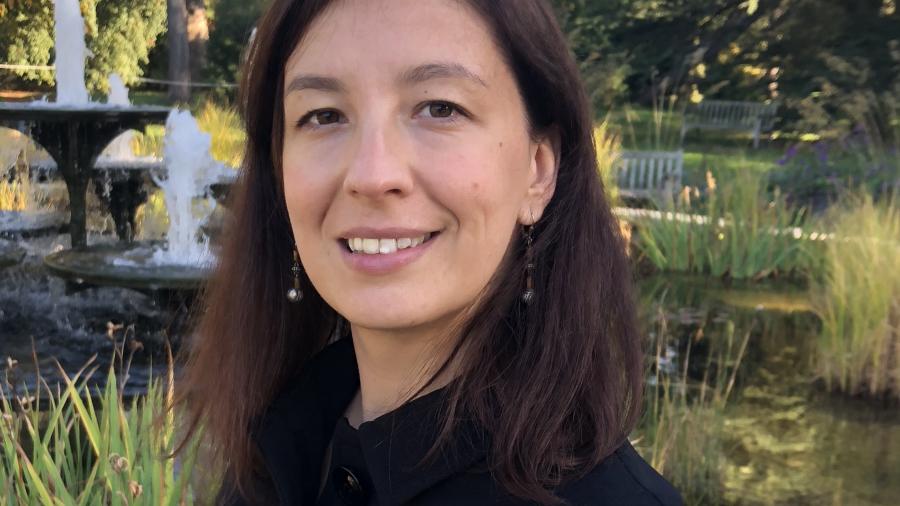
Marina first came to Cambridge as a PhD student at Wolfson College, when she joined Professor Brian Moore’s Auditory Perception Group. Her research was focused on the evaluation of hearing-aid signal processing for people with ‘dead regions in the cochlea’, an abnormality affecting a particular type of sensory cells in the inner ear.
While at the Auditory Perception Group, Marina started collaborating with Dr Josephine Marriage as a Research Audiologist. Together, they joined Community NHS paediatrician Dr Tamsin Holland Brown to explore alternative interventions during the watchful waiting period of children with glue ear. Their research inspired two NHS trusts to develop low-cost bone-conduction headsets to support communication in children with glue ear.
Marina’s long-standing interest in the plasticity of the auditory system and on the effects of auditory deprivation led her to join the Department of Clinical Neurosciences at the University of Cambridge in January 2019. She is now a Research Associate in Dr Debi Vickers’ and Prof Manohar Bance’s laboratories. Her research focuses on the use of electrophysiological methods to improve the care given to users of cochlear implants (CIs). Her current project have a focus on neuromodulation to relieve tinnitus and on searching for biomarkers of cross-modal organisation and audiovisual integration in users of CIs. This can help to understand the process of adaptation to a CI and inform clinical decisions.
As a PhD student, Marina served twice as an International Officer on the Wolfson College Students’ Association (WCSA) Committee, she was the President of the Wolfson Arts Film Society, and helped in the organisation of the Lunchtime Seminar Series. Marina won the Wolfson Research Event Presentation Award in 2010 and collaborated in the organisation of this event in 2012. Determined to remain engaged in Wolfson’s vibrant and progressive community, she currently serves as Tutor, caring for undergraduate and postgraduate full-time students.